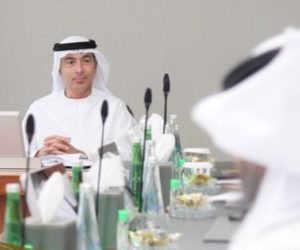By Dan Byrne for AMLi
An enormous effort has been made by banks to ensure compliance with financial crime rules, despite the negative attention that they often get in scandals, a legal expert has told a compliance conference.
Dr Martin Navias, research fellow at King’s College London Centre for Defence Studies, author and lawyer specialising in money laundering and terrorism financing, has praised the CFT efforts made by banks and other firms. In the UK banks were spending £5Billion per annum on compliance, he revealed.
He also stressed that these institutions were not the environment for combatting terrorism, and criticised the expectations put on them in this regard.
Delivering his comments at a conference on ‘Designing Compliance for the Future’ Dr Navias noted how banks and other financial institutions regularly seemed to get bad press, but that their efforts were commendable.
“Within the British Bankers’ Association alone, members are spending £5Billion per year on compliance,” he said.
“An enormous effort has been directed into compliance. And to be frank, the FATF – in its evaluation of the UK – did not give us a totally bad report.”
He noted that a lot of the negative emphasis on the UK’s AML reputation in recent times has been on matters like Russian criminals purchasing property in wealthy London suburbs, but that this did not illustrate the full picture of AML in Britain.
It comes as part of a larger conveyor belt of financial crime revelations such as the recent FinCEN files leak, showing how billions in dirty money have flowed through some of the biggest banks in Europe, including the UK.
These banks’ reputations suffered in the aftermath.
“An enormous amount of rules have been imposed on the private sector and more are coming,” Dr Navias said of the challenges. “Compliance is enormously expensive and time-consuming.”
He brought additional criticism on the perception that banks are the ultimate line of defence against financing terrorism, saying that there is little any institution could do to prevent the some of the most recent events in the west.
“None of the attacks in Paris, Nice or Vienna could have been stopped,” he said, harking to the fact that the perpetrators in these cases were lone actors. “Banks cannot identify these kinds of terrorist attacks before they take place using the tools that they have.”
“If, after the event, the authorities provide us with information, then there’s scope.”
His comments were echoed by research fellow at the International Centre for the Study of Radicalisation Florence Keen, who has a background in researching far-right extremism and terrorist financing.
“I wouldn’t take the view that banks don’t genuinely care, particularly when you have employees who used to work in law enforcement,” she said. “I’ve personally seen examples of people in banks who really want to work with enforcement.”
Looking towards the future, Dr Navias emphasised that he wished to see developments in technology, as well as increased sharing of information from authorities to the private sector, so they could play a fuller part in AML.
“We need intelligence from state authorities to help us identify issues,” he said.
He also expressed scepticism of CFT cooperation which took place purely between authorities of different countries, saying that that different definitions of ‘terror’ across borders would likely be a stumbling block.
Share this on:
Follow us on:








